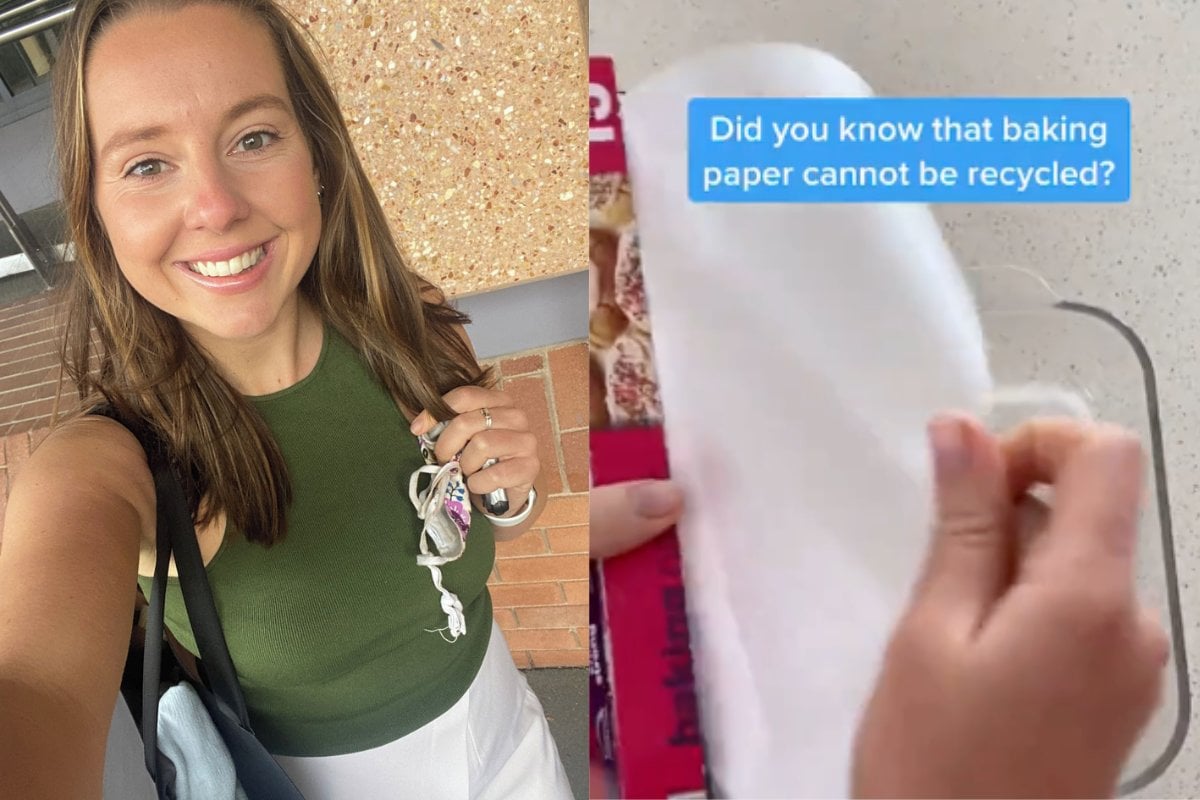
I hate to say it, but life isn’t as simple as the good old days.
We’re seeing confusing terms like biodegradable and compostable popping up in every industry, a plethora of recycling 'dos and don'ts' and greenwashing can be seen in every aisle. Living more responsibly is like learning a new language without a guidebook. It’s time to dig deeper into some of your daily essentials and discover a more planet-friendly solution.
So without further ado, here are six products that you probably reach for every day, that Mother Nature would rather you did not.
Watch: 7 eco-friendly habits that aren't so green... Post continues below.
1. Baking paper
It’s a little known fact that even though greaseproof paper has the word paper in it, it cannot be recycled. The waxy non-stick coating means that recycling facilities struggle to recycle it.
Aluminium foil, on the other hand, can be recycled. Simply remove any food residue and roll it into a tennis ball-sized ball.

